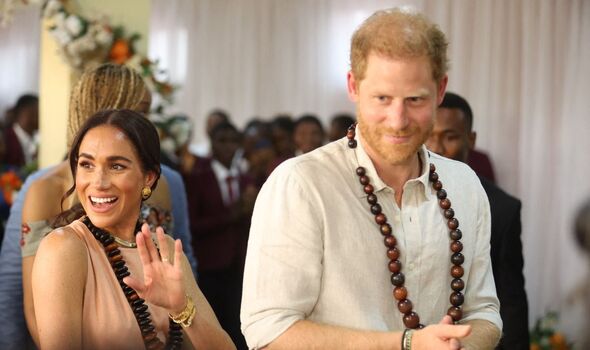The News
Explosive Revelations: The Royal Lodge Drama Unfolds
In the ever-tumultuous world of the British royal family, the saga of Prince Andrew and his residence at Royal Lodge is reaching new heights of intrigue.
Recent developments reveal a shocking narrative that highlights the complexities of royal privilege, family loyalty, and the consequences of one's actions.
As the dust settles on this drama, it's clear that the stakes have never been higher.
Prince Andrew, once a prominent figure in royal circles, now finds himself desperately clinging to the lavish Royal Lodge.
This mansion, valued at a staggering £30 million, has become a symbol of his declining status.
While he once strutted about with confidence, the reality of his situation is starkly different today.
His attempts to maintain relevance seem increasingly futile as the walls of his royal world close in around him.
King Charles, navigating this family crisis with grace and resolve, has demonstrated an impressive balance of firmness and compassion.
According to Robert Hardman's recent biography, even the late Queen Elizabeth wished for Andrew to vacate Royal Lodge.
This revelation underscores a dramatic shift in familial dynamics—when even a mother's love cannot shield a child from the consequences of their choices.
The King has extended a lifeline to his brother, offering Frogmore Cottage, the former residence of Harry and Meghan, as an alternative.
However, Andrew's refusal to accept this offer paints a picture of stubbornness that is hard to ignore.
His attachment to Royal Lodge seems less about the property itself and more about holding onto a past life that is slipping away.
Financially, Andrew's situation raises eyebrows.
He reportedly pays just £250 a week for the upkeep of Royal Lodge, a figure that seems almost laughable given the mansion's worth.
Despite having signed a 75-year lease in 2003, his financial mismanagement and past associations have left him in a precarious position.
The stark contrast between his lifestyle and that of other royals only amplifies the absurdity of his claims to entitlement.
Moreover, Andrew's desire to pass on Royal Lodge to his daughters, Eugenie and Beatrice, is perplexing.
While they have shown remarkable resilience in the face of their father's disgrace, inheriting a property that their father struggles to maintain feels more like a burden than a blessing.
It's a situation that raises questions about foresight and responsibility within the family.
The roots of Andrew's troubles are well-known.
His connections with Jeffrey Epstein and a disastrous interview left him stripped of titles and patronages, leaving a lasting stain on the royal family's reputation.
The consequences of his choices have reverberated through the monarchy, forcing King Charles to make difficult decisions while trying to protect his brother from further embarrassment.
As Andrew digs in his heels, the contrast with other royals becomes glaringly obvious.
William and Catherine continue to embody the principles of duty and service, even amidst personal challenges.
Their commitment to the crown stands in stark opposition to Andrew's defiance, highlighting a rift in royal values and responsibilities.
Charles's approach to managing Andrew's situation reflects a weary understanding that many can relate to.
It's a familiar tale of dealing with difficult relatives—recognizing when to step back and let them face the consequences of their actions.
The King's patience is commendable, but it also raises the question: how long can this dynamic continue without resolution?
With Sarah Ferguson's recent cancer treatment announcement, the pressure on Andrew has intensified.
The timing suggests that his excuses for remaining at Royal Lodge are evaporating.
Yet, instead of recognizing the shifting tides, Andrew appears to be entrenched in a misguided belief that he is somehow winning by staying put.
The implications of Andrew's choices extend beyond his personal life.
Each day he remains in Royal Lodge invites public scrutiny and distracts from the important work being done by the working royals.
This ongoing drama threatens to undermine King Charles's efforts to modernize the monarchy and restore its image.
Ultimately, the saga of Prince Andrew serves as a cautionary tale about the pitfalls of privilege and the importance of accountability.
It highlights how even those born into power can falter when they refuse to accept reality.
As this story continues to unfold, it remains to be seen whether Andrew will find a way to navigate his challenges or remain trapped in a cycle of denial.






























































